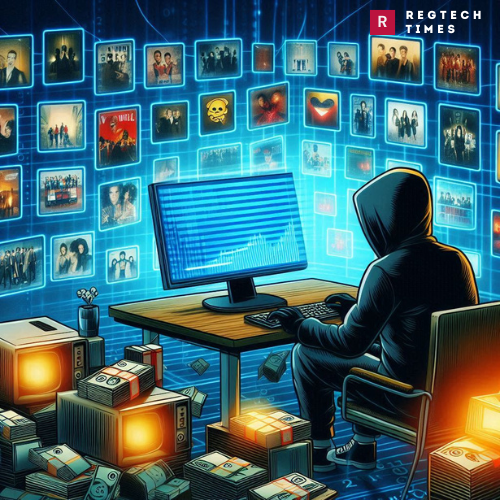In a landmark case that highlights the ongoing battle against digital piracy, five individuals have been convicted for their roles in operating Jetflicks, one of the largest unauthorized streaming services in the United States. The convictions, handed down by a federal jury in Las Vegas, highlight the significant financial and legal repercussions of illegally distributing copyrighted television content on a massive scale.
The Genesis of Jetflicks
Founded as early as 2007, Jetflicks was not just another streaming platform, but a sophisticated operation designed to profit from pirated TV episodes. Kristopher Dallmann, Douglas Courson, Felipe Garcia, Jared Jaurequi, and Peter Huber orchestrated the service, employing automated scripts to scour the internet for illicit copies of popular television shows. These episodes were then downloaded and stored on Jetflicks servers, amassing a vast catalog that rivaled major legitimate streaming services like Netflix and Hulu.
The Impact and Operations
Jetflicks operated as a subscription-based service, drawing revenue from tens of thousands of paying subscribers eager for access to a vast library of stolen content. This enterprise generated millions of dollars in criminal profits while inflicting substantial financial losses on copyright holders, who saw their intellectual property exploited without authorization or compensation.
The scale of Jetflicks’ operation was staggering, with the service boasting a catalog larger than the combined offerings of major streaming giants. This not only attracted a large user base but also posed a significant challenge to authorities tasked with combating digital piracy.
Legal Consequences and Prosecution
The convictions against the Jetflicks operators were the result of a rigorous investigation led by the FBI, supported by field offices in Washington and Las Vegas. The prosecution was overseen by the Criminal Division’s Computer Crime and Intellectual Property Section (CCIPS) and Assistant U.S. Attorneys from the District of Nevada, focused on charges of conspiracy to commit criminal copyright infringement.
The case also involved charges of money laundering against Kristopher Dallmann, illustrating the lengths to which the defendants went to conceal and profit from their illicit activities. Each defendant faces potential prison sentences, with Dallmann facing up to 48 years behind bars.
Law Enforcement’s Commitment and Challenges
Assistant Director in Charge David Sundberg of the FBI Washington Field Office emphasized the non-victimless nature of digital piracy, pointing out its detrimental impact on content creators and copyright holders. The investigation not only targeted the operational aspects of Jetflicks but also exposed attempts by the defendants to disguise their enterprise as a legitimate aviation entertainment company when faced with legal and financial pressures.
The Broader Context of Digital Piracy
The case of Jetflicks is part of a larger global effort to combat digital piracy, which continues to evolve alongside advancements in technology. As streaming services grow in popularity, so too does the demand for pirated content, posing ongoing challenges for intellectual property enforcement agencies worldwide. The conviction of Jetflicks’ operators serves as a warning to those who seek to profit unlawfully from creative works, reaffirming the commitment of law enforcement to protect intellectual property rights.
Conclusion: A Landmark in Digital Piracy Enforcement
The convictions of Kristopher Dallmann, Douglas Courson, Felipe Garcia, Jared Jaurequi, and Peter Huber mark a significant milestone in the fight against digital piracy. Their operation of Jetflicks not only demonstrated the scale of illegal streaming but also highlighted the severe legal consequences for those who engage in such activities. Moving forward, the case will likely influence both legal precedents and enforcement strategies aimed at safeguarding the rights of content creators in an increasingly digital world.
In summary, while Jetflicks may have amassed millions in illicit profits, the legal system has demonstrated its ability to pursue and prosecute those responsible, sending a clear message that digital piracy will not be tolerated. As technology continues to reshape the media landscape, the need for robust enforcement measures to protect intellectual property remains paramount. The downfall of Jetflicks serves as a pivotal moment in the ongoing battle against digital piracy, highlighting both the challenges and the determination of law enforcement agencies to uphold intellectual property rights in the digital age.


